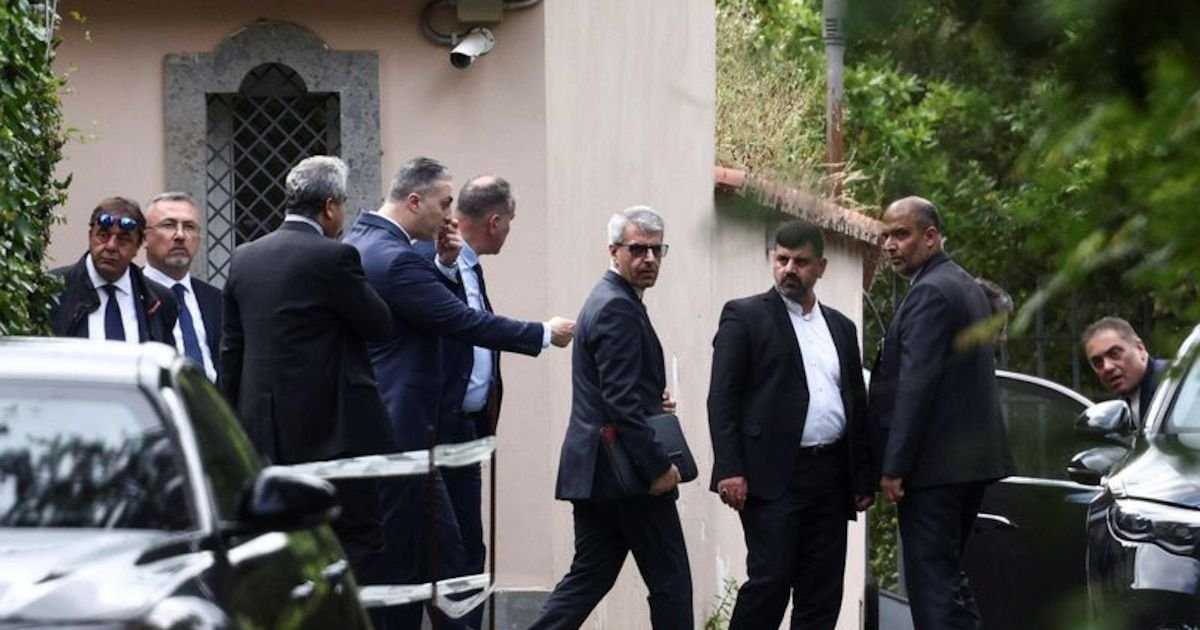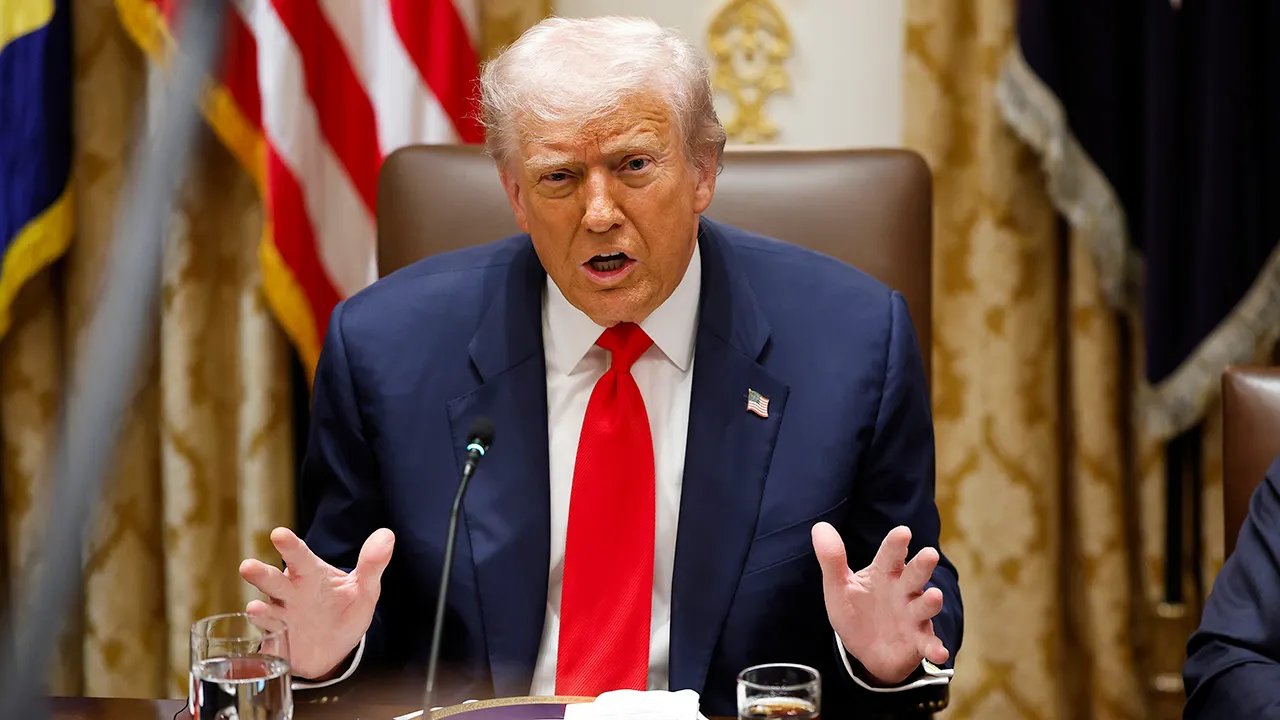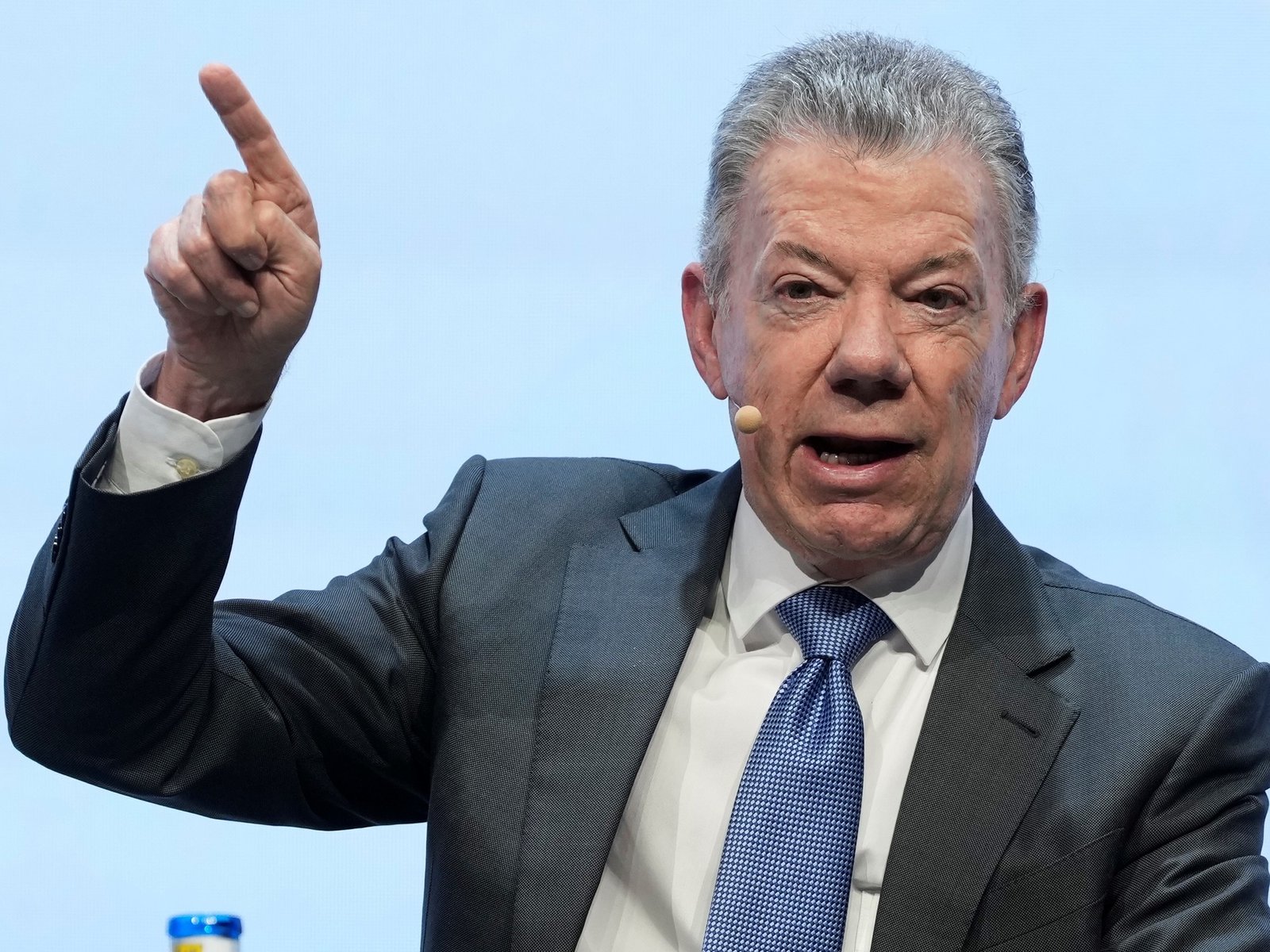INTERNACIONAL
Estados Unidos consideró que las negociaciones nucleares con Irán avanzan pero que “aún queda trabajo por hacer”

El gobierno de Estados Unidos aseguró este viernes, al concluir en Roma la quinta ronda de conversaciones con Irán sobre su programa nuclear, que las negociaciones siguen avanzando de forma “constructiva”, aunque persisten diferencias significativas que impiden cerrar un acuerdo.
“Hemos avanzado, pero aún queda trabajo por hacer”, señaló a la agencia de noticias EFE un alto funcionario estadounidense bajo condición de anonimato.
Las conversaciones, que se llevaron a cabo en la embajada de Omán en Roma, se extendieron por más de tres horas e incluyeron intercambios directos e indirectos entre las delegaciones de ambos países. Omán, que oficia de mediador, fue reconocido por Washington por su rol en facilitar el diálogo. Aún no se ha fijado una nueva fecha ni lugar para la próxima ronda de negociaciones.
El principal punto de fricción sigue siendo el enriquecimiento de uranio por parte de Irán. Washington exige su cese total, mientras que Teherán insiste en mantenerlo con fines civiles. El enviado especial de EEUU para Oriente Medio, Steve Witkoff, reiteró en días previos que el “enriquecimiento cero” es una “línea roja” para el gobierno de Donald Trump, una postura que ha sido duramente criticada por autoridades iraníes, incluyendo al líder supremo, el ayatollah Ali Khamenei, quien calificó la demanda como un “disparate”.
Según el ministro de Exteriores iraní, Abbas Araqchi, las negociaciones, iniciadas el pasado 12 de abril, son “demasiado complejas” para ser resueltas en unas pocas reuniones. “Todavía no hemos llegado, pero tampoco estamos desanimados”, declaró a la televisión estatal iraní, tras calificar la ronda en Roma como “una de las más profesionales”.

El canciller omaní, Badr bin Hamad al Busaidi, confirmó en un mensaje en la red social X que hubo “algunos avances, aunque no concluyentes”. Añadió que esperan “aclarar las cuestiones pendientes en los próximos días” y agradeció a las autoridades italianas por acoger las conversaciones en la capital.
Al Busaidi también presentó propuestas que serán analizadas en las capitales de ambos países antes de la reanudación del diálogo. Según Araqchi, estas ideas podrían permitir “eliminar algunos obstáculos” y generar un marco para eventuales soluciones.
Las conversaciones se dan en un contexto de fuerte presión por parte de la administración Trump, que abandonó el acuerdo nuclear de 2015 y ha impuesto nuevas sanciones a Teherán, incluida esta semana, cuando prohibió la venta de perclorato de sodio a Irán, un componente químico presuntamente recibido a través del puerto de Bandar Abbas.
El Departamento de Estado estadounidense reafirmó su objetivo de alcanzar un pacto que permita a Irán contar con un programa de energía nuclear civil, pero sin capacidad de enriquecer uranio. La portavoz Tammy Bruce señaló el jueves: “Creemos que vamos a tener éxito. Los iraníes entienden cuál es nuestra posición y continúan avanzando”.
Mientras tanto, Israel ha reiterado que no descarta ataques preventivos contra las instalaciones nucleares iraníes, lo que ha incrementado la tensión en una región ya sacudida por la guerra en Gaza. Irán, por su parte, ha amenazado con “medidas especiales” de defensa y denunció que consideraría responsable a Estados Unidos en caso de una agresión israelí.

A pesar de las posturas duras, ambas partes reconocen la necesidad de alcanzar un acuerdo. Irán enfrenta una economía debilitada por las sanciones y protestas internas. Desde la reanudación de las conversaciones, la moneda local se ha estabilizado parcialmente, lo que ha generado expectativas en el régimen de Teherán.
Por el lado estadounidense, el presidente Trump ha reiterado que un nuevo pacto es esencial para evitar una carrera armamentista en la región. La Administración ve con preocupación que Irán, sin un acuerdo, podría reducir a menos de una semana el tiempo necesario para producir suficiente uranio de grado armamentístico, según un reciente informe de la Agencia de Inteligencia de Defensa.
Con las negociaciones en punto muerto y sin una fecha definida para la próxima ronda, el futuro del diálogo nuclear sigue siendo incierto. Lo único que por ahora comparten ambas delegaciones es el reconocimiento de que “aún queda trabajo por hacer”.
(Con información de AP, EFE, EP y Reuters)
Diplomacy / Foreign Policy,Europe,ROME
INTERNACIONAL
GOP lawmakers warn Trump’s Argentina beef proposal could rattle US ranchers

NEWYou can now listen to Fox News articles!
FIRST ON FOX: A group of House Republicans is raising concerns about the potential effects of the U.S. importing Argentinian beef after President Donald Trump floated the idea earlier this week.
Rep. Julie Fedorchak, R-N.D., is leading seven other House GOP lawmakers in a letter to the president on Tuesday evening, warning the potential plan has rattled the multibillion-dollar American ranching industry.
«America’s cattle producers are among the most resilient and hardworking in the nation,» the Republicans wrote. «Collectively, the cattle industry supports thousands of jobs across our districts and contributes $112 billion to rural economies nationwide.»
«In recent days, we have heard strong concerns from producers regarding reports that the U.S. may import beef from Argentina.»
HOUSE PASSES TRUMP-BACKED PLAN TO AVERT GOVERNMENT SHUTDOWN
President Donald Trump speaks during a meeting with President of Argentina Javier Milei in the Cabinet Room at the White House in Washington, Oct. 14, 2025. (Kevin Dietsch/Getty Images)
The House Republicans acknowledged the «importance of strong trade relationships and diverse markets» but added that beef producers in their districts «are seeking clarity on how this decision will be made, what safety and inspection standards will apply, and how this policy aligns with your administration’s commitment to strengthening American agriculture.»
Trump suggested Sunday that buying beef from Argentina could help lower prices for Americans at home, amid a wider promise to lower costs for U.S. citizens.
«One of the things we’re thinking about doing is beef from Argentina,» Trump told reporters aboard Air Force One.
He later elaborated in his conversation with reporters, «We would buy some beef from Argentina. If we do that, that will bring our beef prices down.»
«Our groceries are down, our energy prices are down. I think we’re going to have $2 gasoline pretty soon. We’re getting close and everything’s down. The one thing that’s kept up is beef,» Trump said.
He added that it would not be «that much» but argued it would help Argentina, a U.S. ally, as well.
58 HOUSE DEMS VOTE AGAINST RESOLUTION HONORING ‘LIFE AND LEGACY’ OF CHARLIE KIRK

Cattle drive to Centennial Ranch, San Juan Mountains, Colorado. (Joe Sohm/Visions of America/Universal Images Group via Getty Images)
But the House Republicans questioned whether imported beef would be held to the same food safety and animal health requirements as that of the U.S., which they called «the gold standard.»
«Any import policy must hold foreign suppliers to those same rigorous standards. Introducing beef from countries with inconsistent safety or inspection records could undermine the confidence that U.S. ranchers have worked decades to earn,» the lawmakers warned.
«We respectfully request additional information on this matter and urge your administration to ensure that any future decisions are made with full transparency, sound science, and a firm commitment to the U.S. cattle industry. America’s producers can compete with anyone in the world. If given an opportunity, they will continue to respond quickly to the market demand for more quality American beef in our grocery stores.»
In addition to Fedorchak, the letter is also signed by Reps. Michelle Fischbach, R-Minn., Troy Downing, R-Mont., Gabe Evans, R-Colo., Dusty Johnson, R-S.D., Derek Schmidt, R-Kan., Jeff Hurd, R-Colo., and Republican Study Committee Chair August Pfluger, R-Texas.
White House spokesman Kush Desai told Fox News Digital in response, «The Trump administration remains committed to addressing the needs and concerns of American cattle producers and safeguarding their interests at home and abroad. That’s why the administration has secured billions in new export opportunities for American agricultural products in our historic trade deals with the UK, Japan, the EU, and others.»
«It’s also why the administration is focused on reversing a prolonged decrease in the supply of live cattle by growing American cattle herds with robust action to deliver disaster relief to cattle country, support new ranchers, and reduce risk for cattle producers,» Desai said.
Trump’s proposal has stirred some anxiety among some Republicans whose constituencies depend on cattle ranching.
Sen. Deb Fischer, R-Neb., posted on X Tuesday, «If the goal is addressing beef prices at the grocery store, this isn’t the way.»
«The U.S. has safe, reliable beef, and it is the one bright spot in our struggling ag economy. Nebraska’s ranchers cannot afford to have the rug pulled out from under them when they’re just getting ahead or simply breaking even,» Fischer wrote.
Meanwhile, Fox News Digital was told that Rep. Harriet Hageman, R-Wyo., also raised significant concerns about what importing beef from Argentina could do to the U.S. cattle ranching industry during a call with fellow House Republicans on Tuesday.
CLICK HERE TO GET THE FOX NEWS APP
But some Republican responses were more muted. Sen. Markwayne Mullin, R-Okla., told reporters that Trump «definitely identified a problem» regarding a shortage of cattle in the U.S. He added, «I understand what he’s trying to get done. I think there’s more ways to implement it.»
Fedorchak herself told Fox News Digital, «We’ve all received a number of questions and calls from our constituents over the last few days, so we are asking for clarity on the administration’s long-term plans. Our farmers and ranchers stand ready to deliver on the president’s America-First agenda. North Dakotans take great pride in producing the safest, highest-quality beef in the world — and we should be building on that success.»
house of representatives politics,politics,donald trump,republicans
INTERNACIONAL
Juan Manuel Santos, ex presidente de Colombia y Nobel de la Paz: “Los egos de los líderes llevados a esos extremos causan un tremendo daño»
INTERNACIONAL
Israel receives 2 more hostage coffins from Gaza through Red Cross operation as identification begins

NEWYou can now listen to Fox News articles!
Israel on Tuesday received the coffins of two hostages returned from Gaza through the Red Cross, and officials said the remains will be identified before being released to their families as the military vowed to keep working to bring home all remaining captives.
Prime Minister Benjamin Netanyahu’s office said the coffins were handed over to the Israel Defense Forces (IDF) and Shin Bet force inside Gaza. From there, they will be transferred to Israel, where they will be received in a military ceremony with the chief military rabbi.
Once received, the coffins will be placed in the custody of the National Center of Forensic Medicine of the Ministry of Health, where they will be identified. The families will receive formal notification once the process is complete.
The prime minister’s office said all families of the deceased hostages have been updated and sympathy has been expressed for their loss.
ISRAEL NAMES TWO OF FOUR DEAD HOSTAGES RETURNED BY HAMAS, HOW THEY DIED
People walk past posters of hostages held by the Palestinian militant group Hamas in Gaza at Hostage Square in Tel Aviv Oct. 10, 2025. (Ahmad Gharabli/AFP via Getty Images)
«The effort to return our hostages continues ceaselessly and will not stop until the very last hostage is returned,» Netanyahu’s office said.
The news comes the same day remains of a hostage returned from Gaza were identified as Sgt. Maj. Tal Haimi, commander of Kibbutz Nir Yitzhak’s rapid response team.
REMAINS OF LAST FEMALE HAMAS HOSTAGE AND IDF SOLDIER HANDED OVER TO ISRAEL

Israeli Prime Minister Benjamin Netanyahu as President Donald Trump prepares to deliver remarks to the Knesset Oct. 13, 2025 in Jerusalem. (Kenny Holston/Pool/Getty Images)
Haimi was 41 when he died, and, according to the IDF, he was killed in combat while defending Kibbutz Nir Yitzhak during the Oct. 7, 2023, massacre. His remains were taken to Gaza, where they were held for more than two years.
Haimi’s family initially believed he was taken alive, and Israel declared him deceased Dec. 13, 2023.
REMAINS OF LAST FEMALE HAMAS HOSTAGE AND IDF SOLDIER HANDED OVER TO ISRAEL

The Israeli army held a military protocol for deceased hostage Tal Haimi. (IDF Spokesperson’s Unit)
Following the identification of Haimi’s remains, Netanyahu’s office expressed condolences to his family and reiterated its call for Hamas to release the remains of all deceased hostages for proper burial.
The IDF echoed the call, demanding Hamas fulfill its obligations under the agreement brokered by the Trump administration.
CLICK HERE TO DOWNLOAD THE FOX NEWS APP
On Oct. 13, 2025, the final 20 living hostages returned to Israel after more than two years in captivity. Since then, the remains of 28 deceased hostages have gradually been returned, while 13 others — including U.S. citizens Itay Chen and Omer Neutra and soldier Hadar Goldin, whose body has been held since 2014 — remain in Gaza.
Fox News Digital’s Rachel Wolf contributed to this report.
israel,terrorism,armed forces,benjamin netanyahu

 CHIMENTOS3 días ago
CHIMENTOS3 días agoLa fuerte actitud de Manu Urcera con Indiana Cubero que reveló la verdad de la interna familiar: “El saludo del piloto a la hija de Nicole Neumann por su cumpleaños”

 POLITICA3 días ago
POLITICA3 días ago“El Pollo” Carvajal revela cómo Chávez pagaba a Kirchner, Lula y Petro con dinero del narcotráfico

 CHIMENTOS2 días ago
CHIMENTOS2 días agoLa cruda confesión del Turco Naim a 1 año de la separación de Emilia Attias: «Me di cuenta que hay que aprender a estar solo»



























